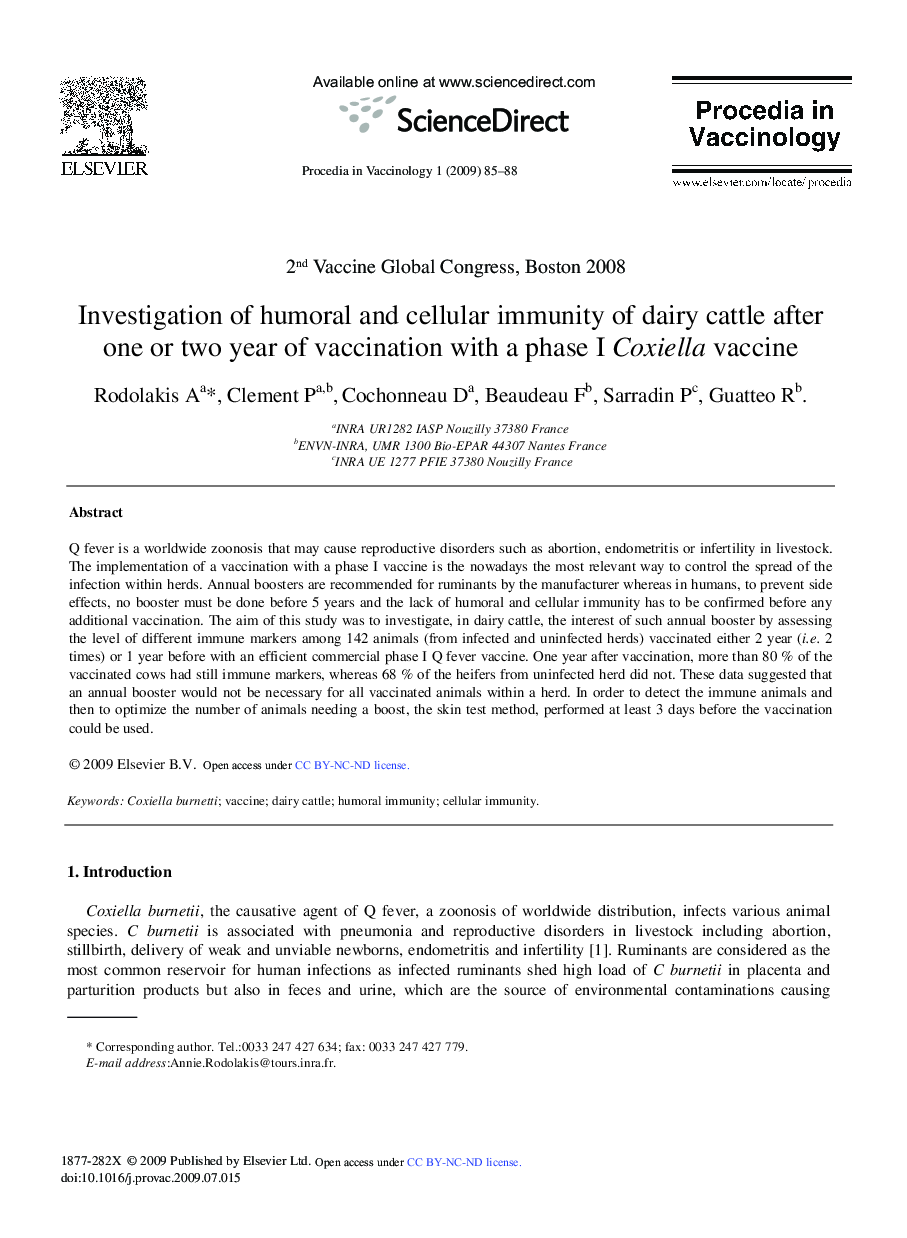| Article ID | Journal | Published Year | Pages | File Type |
|---|---|---|---|---|
| 2473861 | Procedia in Vaccinology | 2009 | 4 Pages |
Q fever is a worldwide zoonosis that may cause reproductive disorders such as abortion, endometritis or infertility in livestock. The implementation of a vaccination with a phase I vaccine is the nowadays the most relevant way to control the spread of the infection within herds. Annual boosters are recommended for ruminants by the manufacturer whereas in humans, to prevent side effects, no booster must be done before 5 years and the lack of humoral and cellular immunity has to be confirmed before any additional vaccination. The aim of this study was to investigate, in dairy cattle, the interest of such annual booster by assessing the level of different immune markers among 142 animals (from infected and uninfected herds) vaccinated either 2 year (i.e. 2 times) or 1 year before with an efficient commercial phase I Q fever vaccine. One year after vaccination, more than 80 % of the vaccinated cows had still immune markers, whereas 68 % of the heifers from uninfected herd did not. These data suggested that an annual booster would not be necessary for all vaccinated animals within a herd. In order to detect the immune animals and then to optimize the number of animals needing a boost, the skin test method, performed at least 3 days before the vaccination could be used.
